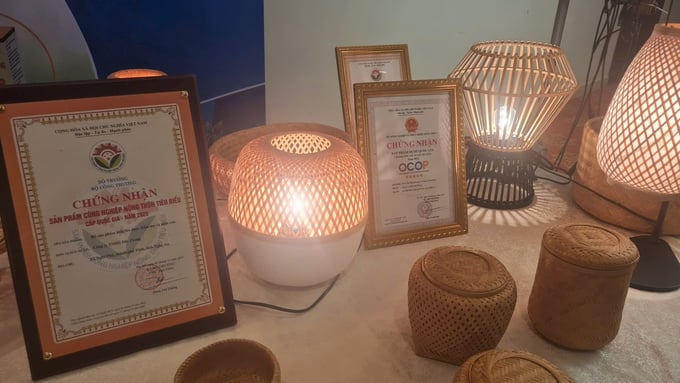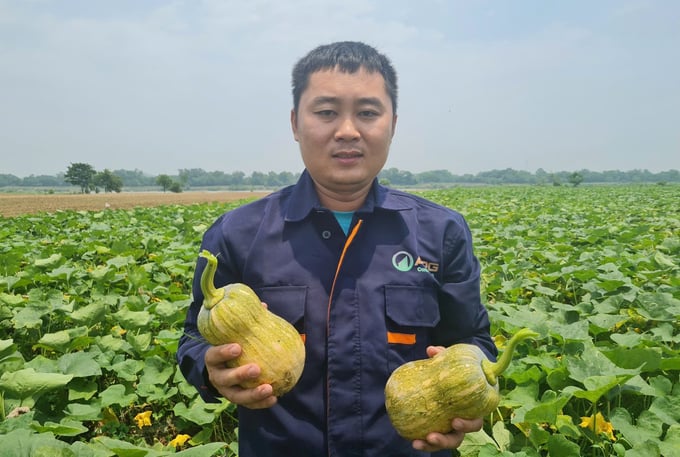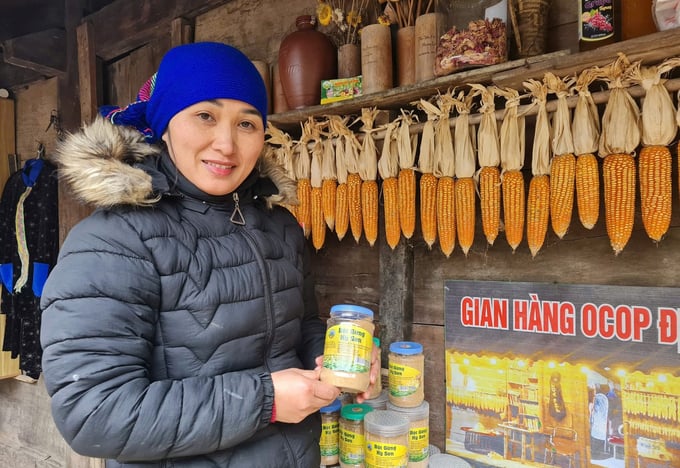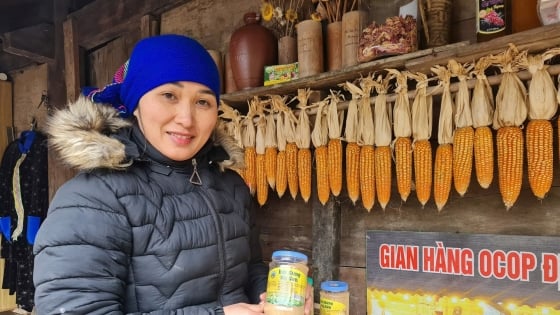(VAN) The competitiveness capacity of the hundreds of OCOP products in Nghe An has not been strong. Transformation must be linked to fundamental principles to enhance the products’ position in foreign markets.
A promising future
After six years of implementation, Nghe An province has nearly 600 products that have been certified OCOP. These products include 529 3-star products, 37 4-star products, and one 5-star product. The province of Nghe An was elevated to the second position in the One Commune One Product program as a result of the impressive figures, trailing only Hanoi.
Nghe An is a vast region with a concentrated population, particularly in rural areas. This provides a foundation for the province to establish the development of the production link following the value chain, with the core pillar being the attachment to sustainable agricultural consumption. This direction either enhances economic efficiency or accelerates the restructuring of the industry, which serves as the basis for the coordinated implementation of the OCOP program.

To improve quality, Nghe An must export more OCOP products. Photo: Viet Khanh.
Nghe An is currently developing a series of concentrated, large-scale, and distinctive production chains, such as sugar cane, tea, and forestry. These chains are attracting over 30 regional and interprovincial enterprises, which are connected to cooperatives, cooperation groups, and farmers. These enterprises are involved in the production of drive force products, such as rice, tea, sugar cane, cassava, and dairy cow farming.
Reviewing the region, it is evident that 278 cooperatives, 120 cooperation groups, and 139 farms are collaborating with major players to enhance the value of agro-forestry-fishery products. For instance, the value of 2023 was 26.21%, and it is anticipated to reach 27% in 2024.
It is encouraging to witness the widespread expansion of the “wave” of advanced scientific and technological applications, high technology, and comprehensive mechanization. The Pu Mat Medicinal Herb Cooperative (Con Cuong District), Quynh Thang Integrated Forestry Cooperative (Quynh Luu District), Hoang Mai Clean Agricultural Products Cooperative (Hoang Mai Town), and Tho Thanh Agricultural & Service Cooperative (Yen Thanh District) are notable examples of cooperatives dedicated to the production, processing, and post-harvest handling of products.

Forming value chains is the highlight of Nghe An OCOP picture. Photo: Viet Khanh.
Mr. Phung Thanh Vinh, Director of the Nghe An Department of Agriculture and Rural Development, underscores the following: “High-tech agriculture generates a substantial quantity of high-quality, high-yield products, particularly those that are environmentally friendly.” This allows producers to be more proactive in production, thereby reducing their reliance on weather and climate conditions. Furthermore, the implementation of technology contributes to the reduction of production expenses and the improvement of market competitiveness.
In 2023, the high-tech agricultural cultivation area in Nghe An exceeded 32,280 hectares, as indicated by statistics. This is an extraordinary figure.
Reaching into demanding markets
Nghe An has attracted a number of significant agricultural companies, including TH Group, Vinamilk, Vinh Hoa Science and Technology Co., Ltd., and Nasu Sugarcane Co., Ltd., as well as 94 high-tech cooperatives, in order to penetrate demanding markets. It is anticipated that these names will serve as catalysts for the advancement of OCOP (One Commune One Product) products.
The availability of 94 out of 562 OCOP products in significant supply chains such as BigC, MM Mega Market, Lotte, Bách hóa Xanh, Aeon, and Maxi Mart is a positive indicator. Additionally, certain OCOP products have developed consistent export markets, including tea that is transported to West Asian nations and fish sauce that is exported to Laos, Japan, and South Korea. Other products have even penetrated more stringent markets, including the United States, Japan, South Korea, the Netherlands, Sweden, and Denmark, as well as France and Germany.

Improving product quality to satisfy the needs of demanding markets is a long-term solution for OCOP Nghe An. Photo: Viet Khanh.
Nghe An’s products, including OCOP, continue to face obstacles in trade promotion activities, despite these accomplishments. These issues are partially the result of policies and mechanisms that are not yet sufficiently robust to support businesses in their global aspirations or to meet development requirements.
In order to resolve this issue, Nghe An intends to continue to refine its policies by expanding the range of beneficiaries and increasing the amount of support provided for agricultural product consumption and trade promotion. Businesses must actively participate in order to enhance investment efficiency, prioritize product quality, and establish robust relationships with distributors in order to broaden their market reach, while the government will serve as a facilitator.
Stakeholders must prioritize the development of main markets such as Hanoi, Ho Chi Minh City, Quảng Ninh, and Da Nang, as well as improve trade activities and establish a connection between supply and demand. This method will facilitate integration into the global economy and cross-border commerce, thereby progressing the development and cultivation of products that possess the potential to dominate international markets.
Agriculture News | Agri Products Price



